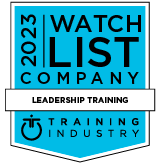IQ vs EQ In The Modern World

Let's set the record straight.
An intelligence quotient (IQ) is a total score derived from a set of standardized tests or subtests designed to assess human intelligence.
An emotional quotient (EQ or EI) is the capability of individuals to practice emotion recognition in identifying their emotions and the emotions of others. People with high emotional intelligence (EI) discern between different feelings and label them appropriately, use emotional information to guide thinking and behavior, and manage and/or adjust emotions to adapt to environments or achieve one's goal(s).
We'll call IQ hard.
It’s a hard skill as our IQ is essentially fixed given our genetics. It's something that benefits us predominately and stimulates a fixed mindset due to the belief of the saying, “the smartest person always wins.”
We'll call EQ soft.
It’s a soft skill as our EQ tends to improve as we get older, and we can accelerate the speed of improvement through learning and adopting a growth mindset.
EQ also benefits other people.

Management vs Leadership
Now, let's define management as predictably getting results (hard), and leadership as the choice to positively influence another human being (soft).
Management is more about IQ. Inherently “me” focused.
In management, we leverage our business acumen to ensure we keep our margins. We leverage our strategic acumen, to ensure we operate in the right markets. And we leverage our analytical skills to find the right investment opportunities and identify trends.
Leadership is more about EQ. Inherently “them” focused.
In leadership, we make the deliberate choice to enrich the lives of those we serve and chose to positively influence those around us.
With a well-developed EQ, we have the self-awareness to know our strengths and blind spots and act accordingly. We can name our emotions and regulate them, understand the emotions of others and react responsibly, and interact effectively with other human beings.
What do you think we need more of these days?
Management or leadership?
IQ or EQ?
Hard or soft.
Do we need more managers trying to squeeze out predictable results, or leaders who work hard to ensure their team feels empowered and have what they need in order to effectively execute their jobs productively and generate needed results?

Soft is the New Hard
Thanks to automation and digitalization, where we once needed a human to crunch numbers, we have a system that will crunch them faster and more accurately for us.
Where we once needed a human to do performance appraisals, we have automated systems that allow for rapid and accurate feedback.
With the advancement of technology, we can rely more heavily on AI and digitization to predictably gather results.
I'd go as far as to say that robots are better at predictably getting results than humans are. They use data without emotions.
We need people to design and manage the robots, and where there are people, there are emotions. Where there are emotions, we need emotional intelligence.
Robots inherently have a high IQ, but they don’t have EQ.
The leaders of the present and future need high levels of emotional intelligence in order to be effective.
The answer, of course, is not black or white. It's a balance.
We need both EQ & IQ.
We need soft and hard.
Historically, though, we as a society have placed more emphasis on IQ, which I believe has created many of the cultural challenges we see in our current workplaces.

EQ Makes Leaders
It starts at school, where we measure IQ and ensure that the bright kids get the resources they need. We emphasize IQ over EQ early on.
If a person has a high IQ, it's pretty safe to say they won't invest much time into developing a high EQ because it's initially undervalued.
These bright students then grow up and perform well in their high-IQ jobs.
Understandably, they want to make more money in return for their high performance, yet, in our current company systems, the only way to make more money is to move up into a management role.
So even though a person may have a low EQ, which is what managers need to effectively lead people, they take the promotion.
Unsurprisingly, many people don’t want to manage. They take the job because it's the only way up.
This is why we have so few great leaders.
It's no fault of our own. This started early on in school where IQ was held at a higher regard than EQ and, therefore, many present-day leaders who started as bright students didn't invest time into strengthening their EQ.
When these bright students become leaders in order to move up in their careers, more often than not, they don't have the will or ability to truly lead and empower humans.

Now, what if we measured EQ as well as IQ early on?
Perhaps the students with high EQ are given the opportunity to be put on leadership tracks at school.
Perhaps we create company systems where high performing individual contributors can move up in their careers without having to be a manager.
Regardless of what the future brings and how society adapts, what we know for sure is that EQ can be strengthened through choosing a growth mindset.
I developed DX with the belief that leadership is learned.
Leaders must make the choice to put the time and effort into developing their EQ in order to be great leaders who put their people first.
We shape organizations worth working for by empowering them to be more human.
Are you a leader worth working for?
Do you want to be?
Then let's get to work.
Insights

Subscribe to Our Monthly Newsletter!
For managers and talent professionals who truly believe in putting people first, the CARE to Win blog is your gateway to the latest insights on human-centric leadership. Join us as we champion the people first movement.
Need some time apart? Are we emailing you too often? Just give us your feedback, and we promise we’ll respond. We really do care. And if it’s still too much, just unsubscribe. It’s cool.
.jpg) Alex Draper
Alex Draper



